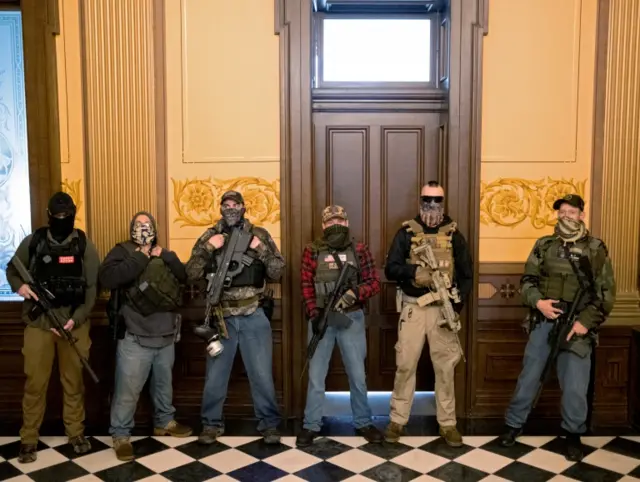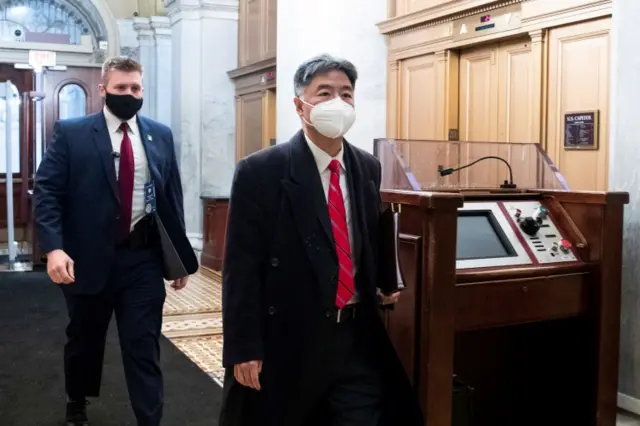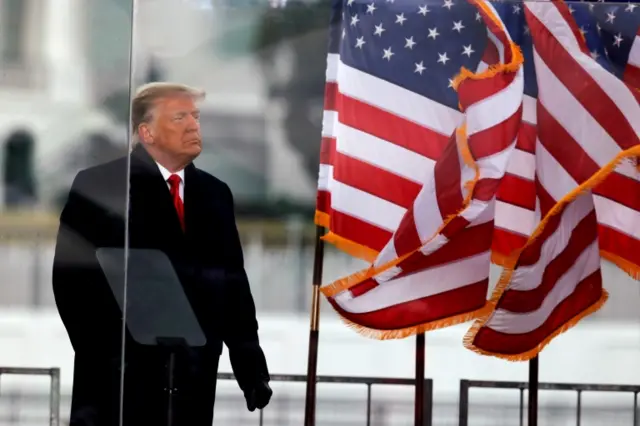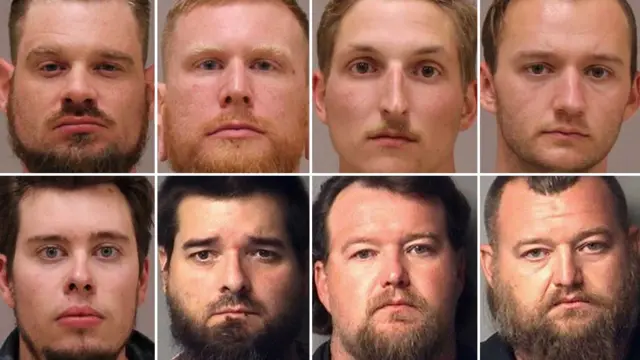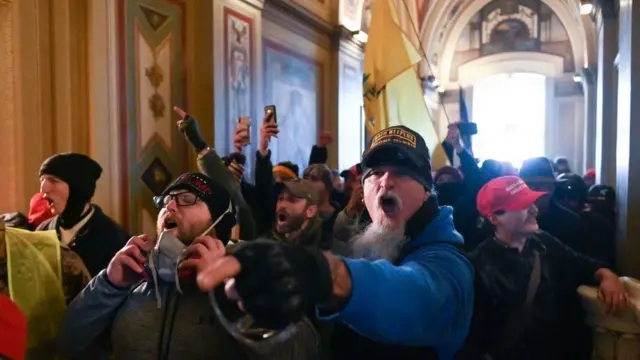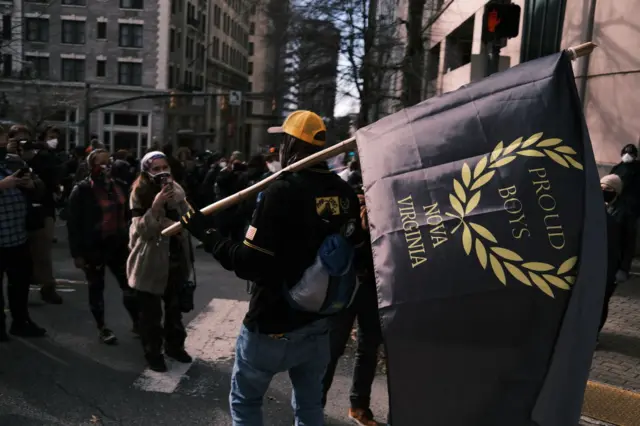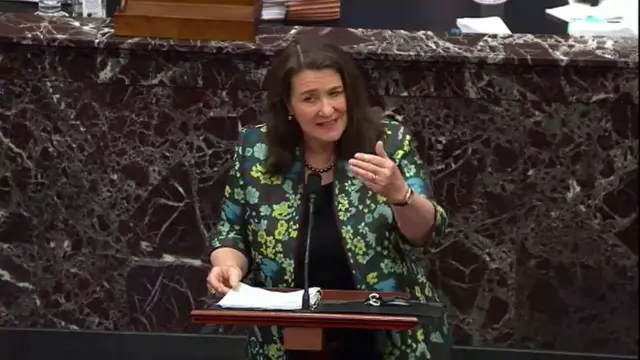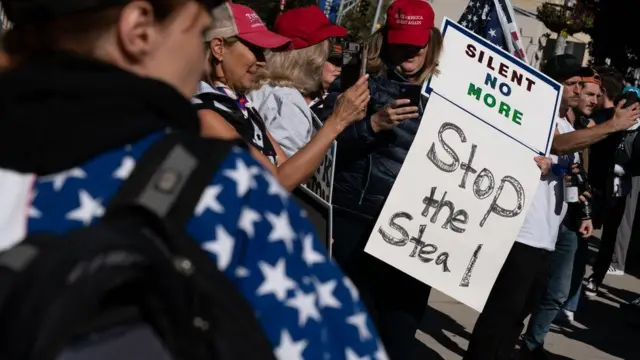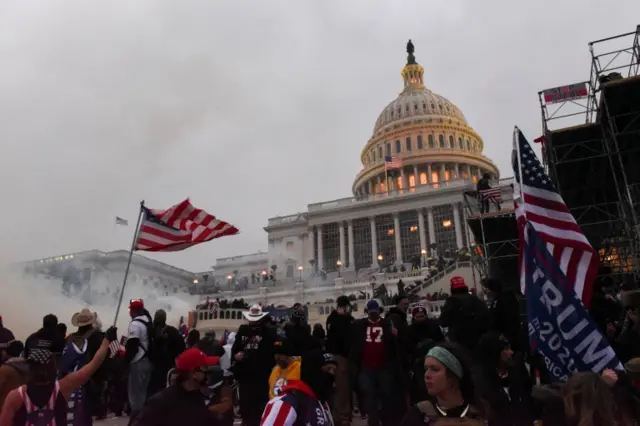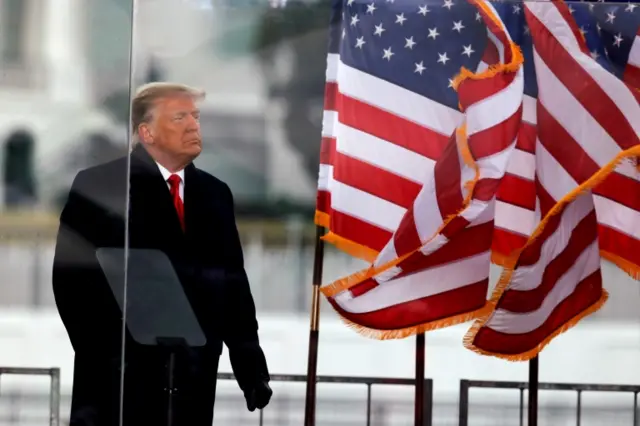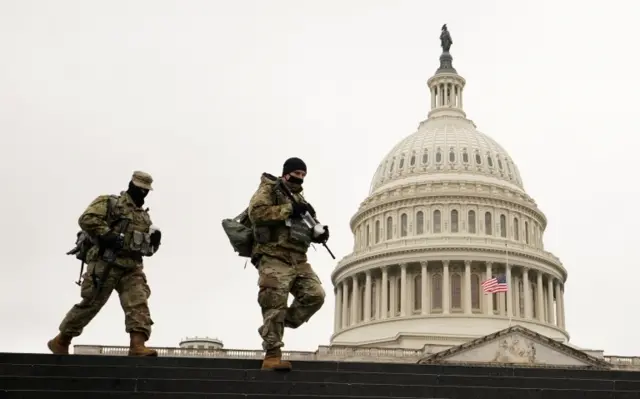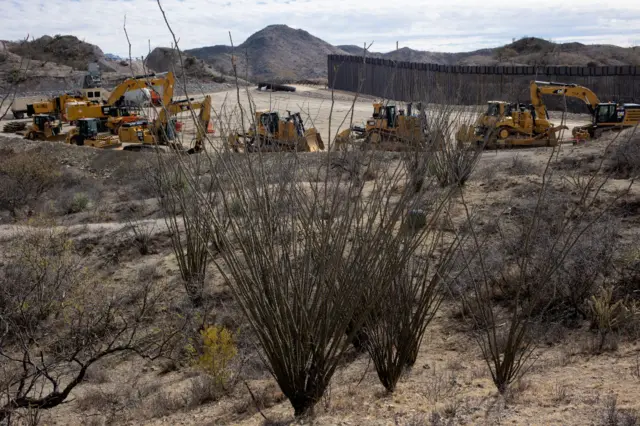Republicans rebuked the riot - Lieupublished at 18:32 GMT 11 February 2021
Congressman Ted Lieu shared a series of remarks from current and former Republican officials from around the country who denounced the riot. Some even directly faulted Trump for his role.
"The fact that these flames of hate and insurrection were lit by the president of the United States will be remembered as one of the darkest chapters in our nation’s history," said Vermont's Republican governor Phil Scott.
John Kelly - who was chief of staff to President Trump - said the insurrection was "a direct result of him poisoning the minds of people with lies and fraud".
"We've seen a president stoking fear," said HR McMaster, Trump's former national security adviser.
Lieu also pointed out how many administration officials had resigned in the aftermath of the attack.
"They all took this dramatic step," said Lieu, "because they saw the clear link between President Trump's actions and what happened."
Here's a look at how members of Congress reacted to the violence:
Trump impeachment: Republicans defend - and some attack - president

